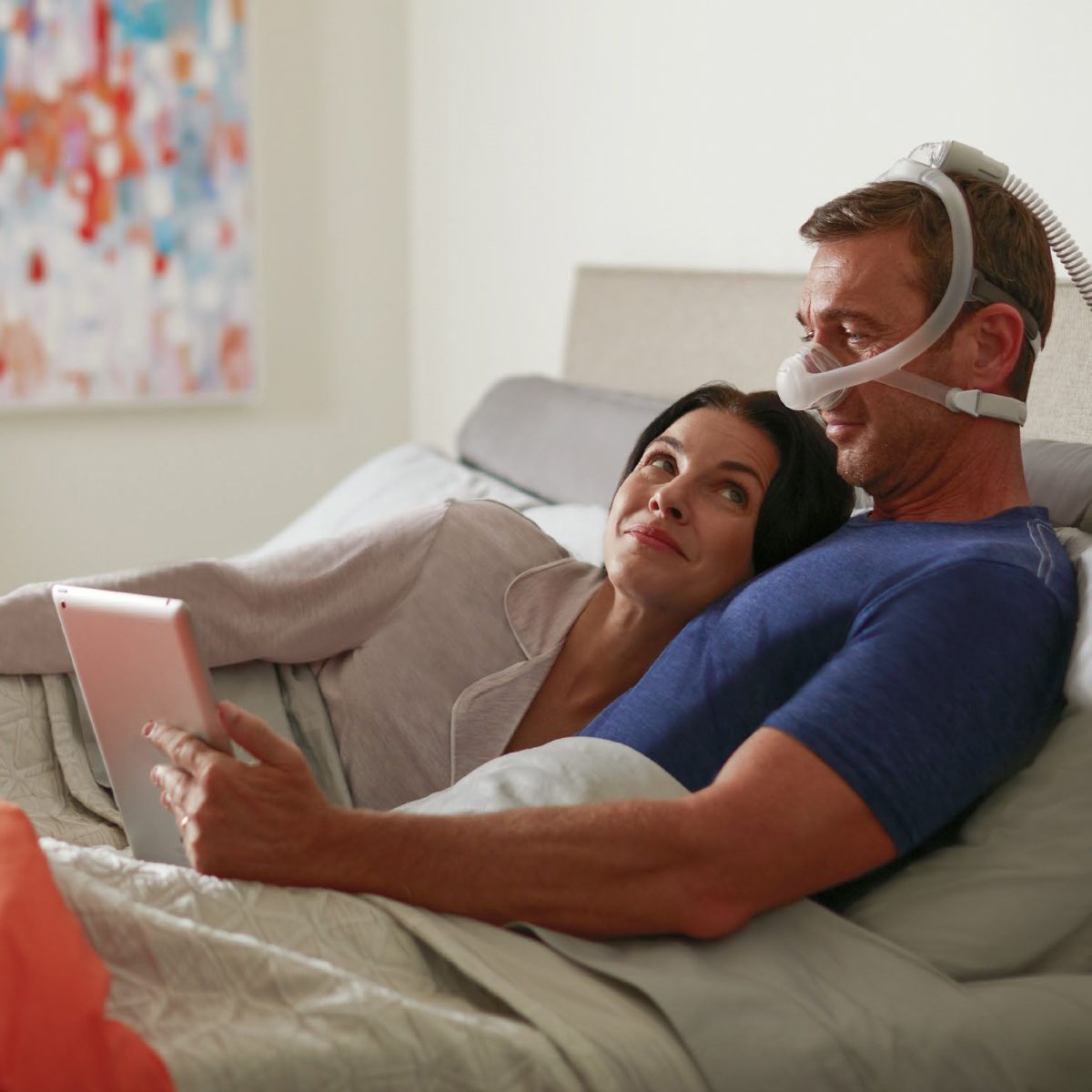Last updated on July 7th, 2023 at 10:35 am
Continuous Positive Airway Pressure (CPAP) therapy is the most popular and effective treatment for Obstructive Sleep Apnoea (OSA).
CPAP machines deliver pressurised air to your airways to prevent breathing pauses (Apnoeas) during the night.
What does a CPAP humidifier do?
You could be wondering how does a humidifier improve CPAP therapy? Adding a CPAP humidifier to your therapy provides moisture and warmth.
Many CPAP users struggle with a dry mouth, nose or throat; humidification prevents this.
Why do I need to use distilled water with my CPAP humidifier?
CPAP manufacturers advise using distilled water to fill up your CPAP water chamber as its purified and prevents contamination. Using distilled water ensures you breathe healthy and fresh air throughout the night.
Unfortunately, standard tap water is not ideal for your humidifier.
Here are some benefits of using distilled water in your CPAP humidifier:
- Creates optimal air pressure
- 99.9% purified
- Eliminates and reduces mineral build-up
- No minerals, microbes, or chemical contaminants
Why can’t you use tap water in your humidifier?
Tap water can contain traces of microbes and pollutants, which are not healthy to breathe in.
Tap water can leave hard white mineral deposits in the chamber due to evaporation, potentially leading to mould growth. Using tap water will decrease your air quality and shorten the lifespan of your humidifier.
It is therefore important that you try to use distilled every time you fill up your humidifier water chamber.
If distilled water is not easily accessible to you, then you can opt for purified water, or if you’re in a pinch, you can use tap water boiled and left to cool down, but try to go back to using distilled water as soon as you can.
How long does distilled water last?
Distilled water is purified, which means it has a long shelf life – you can find this on the bottle.
You can store it somewhere dark and cool (away from sunlight), e.g. your kitchen cupboard. To keep the water pure and uncontaminated. If you store your distilled water correctly, it can last up to two years!
Once the bottle is opened, you should refrigerate it.
Places to buy distilled water for CPAP:
You can purchase distilled water for your cpap humidifier from pharmacies, chemists or at your local grocery store.
Can I use boiled tap water or filtered water in my CPAP humidifier?
Boiling water generally kills microbes but will not remove minerals or chemical contaminants. Filtered water may remove some of the minerals but may not remove living organisms or other chemicals.
It is, therefore, advisable that you opt for distilled water. This will maximise the life of the water tub and reduce mineral deposits.
Can I use tap water in my CPAP for one night?
Bottled water doesn’t contain bacteria but can have minerals like magnesium and calcium.
These elements can leave residue on your water chamber and reduce its lifespan.
How often should I clean my CPAP humidifier?
Cleaning your CPAP equipment is very important to optimise the benefits of your therapy.
You should clean your water chamber daily. It is essential to keep your water chamber as clean as possible to avoid any deposits building up.
Do I need to change the water in my CPAP daily?
If you wake up to find that you haven’t used all the water in the chamber the night before, don’t reuse it. You should empty unused water out of the tank for new water to be added the following night.
How to clean your CPAP humidifier
Here are some standard CPAP humidifier cleaning tips and tricks:
To ensure that your water chamber lasts for as long as possible and remains hygienic to use, it is vital that you clean the water chamber daily. You can wash it with warm water and mild detergent.
Once a month, you should thoroughly examine your water chamber. You should check for deterioration, cloudiness, or a build-up of hard white mineral deposits or mould.
If you can’t clean these deposits, you should consider purchasing a new CPAP water tank.
Water tanks can usually be purchased separately – and can be machine specific (only compatible with a particular CPAP machine)
You can disinfect your humidifier by soaking it in a solution of vinegar and water. 1/5 of the solution should be vinegar, and the rest water. Please leave it to soak in the solution for up to 30 minutes, then thoroughly rinse it with water and leave it to dry. Make sure when you leave it to dry, it is out of the way of direct sunlight.
Avoid cleaning your CPAP humidification system water chamber with any substances that would be harmful to breathe in:
This includes –
- Bleach
- Chlorine
- Alcohol
And any other potentially harmful substances.
Always refer to your humidifier’s manufacturer cleaning guide.
We have helpful cleaning supplies for your equipment, such as the SoClean 2 CPAP sanitiser and mask wipes.
If you think you have symptoms of OSA, such as choking during sleep or chronic snoring – consider an In-Home Sleep Test.
If OSA is left untreated, other serious conditions can be developed, from heart disease to diabetes.
Please contact us if you need further advice on CPAP therapy and humidification.



